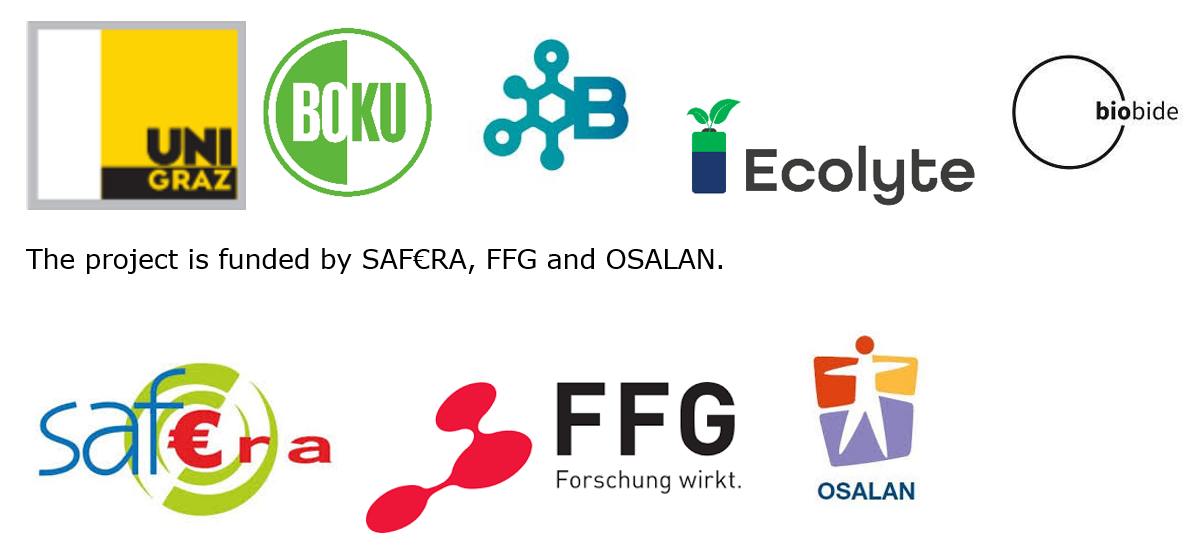SuESS
Safe- and sustainability-by-design approaches for energy storage systems in a green and circular economy
The sustainability and safety of stationary energy storage systems (ESS) have recently become an urgent issue as ESS play an essential role in the renewable energy transitions. The fluctuations typical for renewable energy sources contribute to the overall instability of the electric grid. An emerging strategy to reduce the risks of network overload is to install ESS. However, concerns have arisen among stakeholders about the safety and sustainability of battery technologies, especially regarding the import dependence of critical raw materials as well as their possible ecological and socio-economic impacts. Although there has been some progress in developing safe and sustainable materials, the environmental and social impacts along the whole value chain of different ESS technologies still needs to be investigated.
Therefore, the research project SuESS aims to provide a basis for comparison of different ESS by further developing and implementing the safe- and sustainable-by-design (SSbD) approach. Hereby, the focus is on flow batteries (e.g., vanadium or vanilla based), and lithium-ion battery systems with a storage capacity of > 80 kWh. An LCA and social LCA will be performed to identify environmental and social hotspots using life cycle inventories (LCI) of used battery components as well as data that is available in the consortium and LCA databases like Ecoinvent. Databases such as the Social Hotspot Database and stakeholder assessments serve as the basis for the social LCA. Building upon the results, the SSbD concept will be implemented. Further activities include toxicological testing of battery material and compounds and the collection and analysis of data on real-life ESS and End-of-Life management for a life cycle management model. This enables the evaluation of cycle stability, capacity fading, self-discharge, state-of-health as well as maintenance costs of the ESS.

The project results will be used to derive guidelines for the assessment of risks, sustainability and recyclability. These guidelines will subsequently serve as a basis for decisions on green deal investments by ESS.
Until now, there are relatively few comparative studies dealing with the environmental, social, socio-economic and safety effects of (organic) flow batteries with established battery types such as Li-ion or vanadium oxide. In particular, the social risks associated with the various ESS are rarely addressed. The comprehensive approach in SuESS of assessing toxicology, social and environmental impacts, criticality of materials, technical performance parameters and setting all this information in the context of SSbD will therefore be a valuable contribution to a standardized approach for the comparative assessment of (new) safe and sustainable ESS.
The project is carried out together with the University of Natural Resources and Life Sciences, BioNanoNet, Ecolyte GmbH and BioBide.
Your contact person:
Claudia Mair-Bauernfeind, PhD
+43 316 380 - 7346
Claudia.mair(at)uni-graz.at
Our Project team:
- Claudia Mair-Bauernfeind - Uni Graz
- Julia Wenger - Uni Graz
- Tobias Stern - Uni Graz
- Sarah Wünscher - Uni Graz
- Michael Mayer - Uni Graz
- Florian Part - BOKU
- Aleksander Jandric - BOKU
- Anna Spindlegger - BOKU
- Andreas Falk - BioNanoNet
- Clemens Wolf - BioNanoNet
- Susanne Resch - BioNanoNet
- Christina Pfeifer - BioNanoNet
- Arantza Muriana - Biobide
- Andrea Weiner - Biobide
- Andoni Cruz - Biobide
- Stefan Spirk - Ecolyte
- Georg Rudelstorfer - Ecolyte
- Stefan Pachmajer - Ecolyte
- Dominik Wickenhauser - Ecolyte
